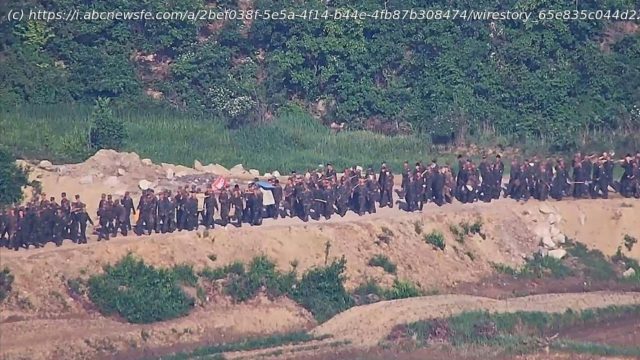The Demilitarized Zone between the two rival Koreas might be the most heavily armed place on earth
Don’t believe the name: The Demilitarized Zone between the two rival Koreas might be the most heavily armed place on earth. Two million mines, barbed wire fences, tank traps and tens of thousands of troops from both countries patrol a divided swath of land 248 kilometers (154 miles) long and 4 kilometers (2.5 miles) wide.
So how, on the eve of Russian President Vladimir Putin’s summit Wednesday with North Korean leader Kim Jong Un, did as many as 30 North Korean soldiers wander over the line separating North from South, causing South Korea to fire warning shots before the North Koreans withdrew?
The short answer appears to be shrubbery: Because of an overgrowth of foliage, the North Koreans may not have seen the signs marking the thin military demarcation line that divides the DMZ into northern and southern sides.
But, more deeply, it can also be understood in light of the long, often violent history of the unique border set up after the 1950-53 Korean War. It ended with an armistice, instead of a peace treaty, leaving the Korean Peninsula divided, and technically still in a state of war.
Here’s a look at the events surrounding the incursion:
On Tuesday, South Korean troops broadcast warnings and fired warning shots to turn back North Korean soldiers — somewhere between 20 to 30 — who briefly crossed the demarcation line in the DMZ.
The North Koreans, who had been doing construction work in the area, immediately retreated, and the South’s military didn’t spot any suspicious activity after that, the Joint Chiefs of Staff in Seoul said.
It was the second such incident in two weeks.
Neither incursion was an invasion, or even a maneuver meant to test the South’s defenses, Seoul says, but more likely an accident.
Home
United States
USA — mix How did North Korean soldiers wander across the world's most heavily guarded...






